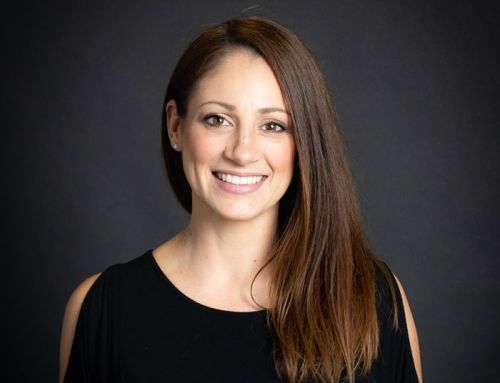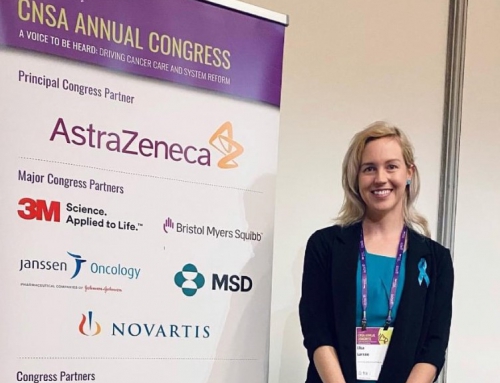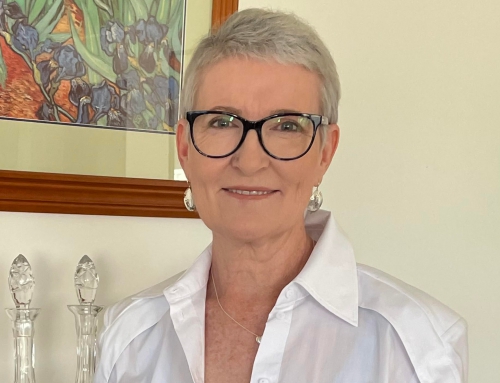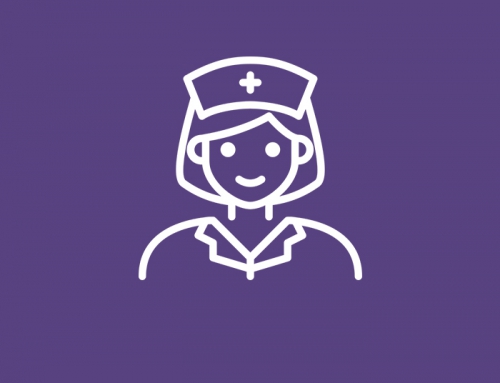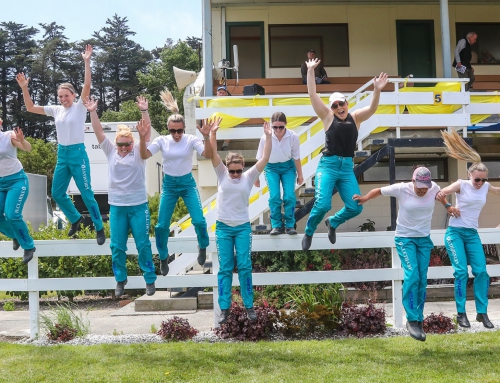In marking International Nurses Day, we celebrate the dedication and expertise of nurses worldwide, we had the privilege of speaking with Bron Jennings, Clinical Nurse Consultant – Gynae Oncology, Mater Hospital Brisbane. Bron is a specialised gynaecological care nurse whose work encompasses patient care, research, and advocacy in the field of gynaecological oncology.
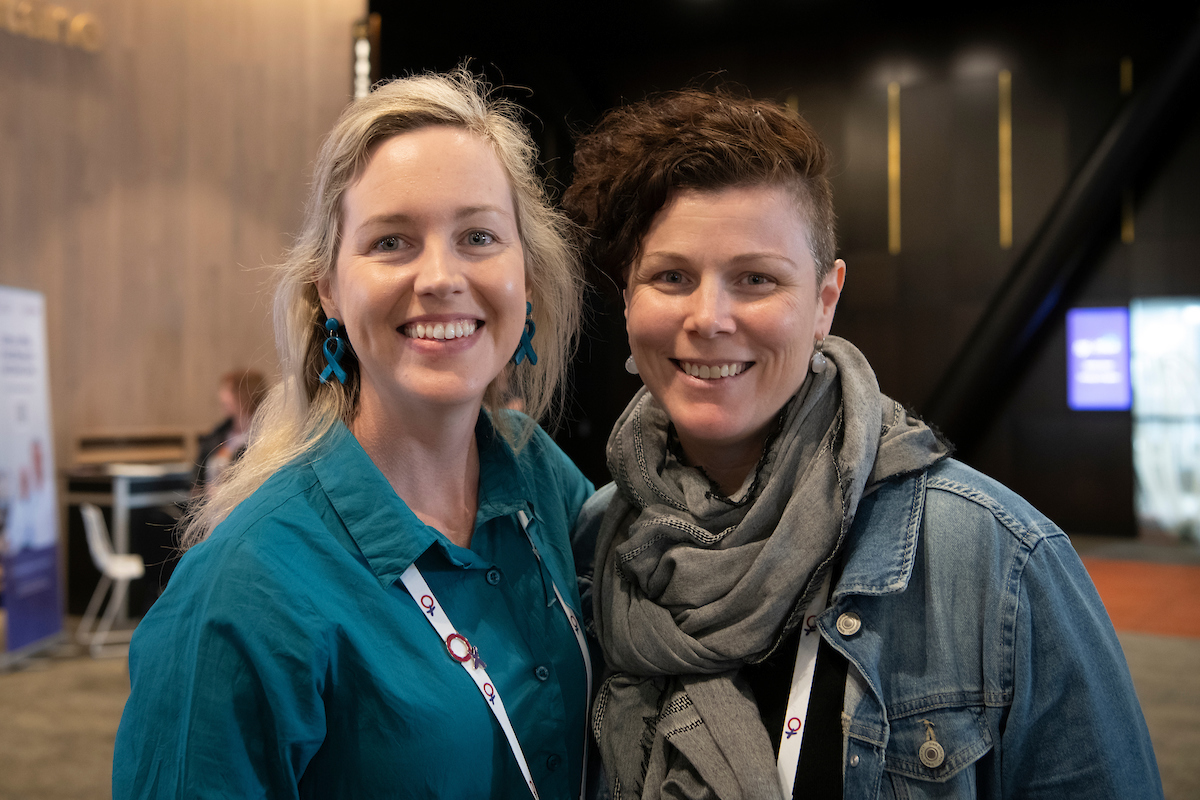
Bron pictured left at ANZGOG ASM 2024, Takina Conference Centre, Wellington New Zealand.
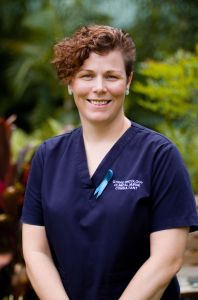
ANZGOG: What motivated you to become involved in research besides your nursing duties?
Bron: I have always been interested in the “why”of our interventions as nurses, for patients, and in cancer care. As a clinician, I think it’s imperative we are able to explain why we are offering a treatment to a patient, and additionally be constantly reassessing and improving our practice. An exciting part about working in cancer care is the evolving treatments. I remember when I started back as a grad nurse Herceptin was a novel treatment for breast cancer. Even within my time with the Gynae Oncology unit, I have seen PARP inhibitors and HRD testing evolve from hypothesis to standard care.
ANZGOG: Can you elaborate on the work you’ve done with ANZGOG’s EDEN Initiative and what are the patterns of clinical follow-up in ANZ?
Bron: I am a member of the EDEN Initiative SURVIVeR (Survivorship, Surveillance and Rehabilitation) Group. In 2023, in consultation with the SURVIVer group I developed and released a survey across Australia and New Zealand, to learn about surveillance practices following treatment for endometrial cancer. This has revealed wide variations in terms of follow-up frequency, investigations, and models of care. Although only a snapshot it’s a great starting point to start a conversation about surveillance practices, again examining the “why” of our follow up, potentially leading to a national guideline and further studies.
ANZGOG: What challenges have you encountered in your research, and how have you addressed them?
Bron: Finding the time and finding the funds are constant challenges in undertaking research, especially research that is not related to a medication or device. This is where professional networks and professional organisations such as ANZGOG are incredibly important, as they give you access to clinicians to collaborate with, and additionally research grants and awards.
“Gynaecological cancer research first and foremost is saving lives. We are extending disease free and progression free survival which is exciting to see. Hand in hand with these clinical discoveries is the incorporation of patient reported outcomes and experiences in these studies which is equally important.”
ANZGOG: Lastly, how do you hope your research will impact the broader healthcare for both the patients and the community?
Bron: I think there are still so many unknowns when it comes to gynae cancers – both in diagnosis and symptoms, but also literature and evidence on the care we are currently providing. Gynae cancer patients (and health professionals) are still finding their voice in a healthcare system that is filled with other cancer types and chronic health conditions. I hope that my work gives not only patients a voice but also raises the profile of nurses and nurse-led models of care.
With a focus on improving patient outcomes and raising awareness, Bron offers unique insights into the challenges and innovations in gynecological cancer care. Join us as we explore the role of Bron in shaping the landscape of healthcare for gynecological cancer patients.
ANZGOG: Could you share what your role entails as a specialised gynecological care nurse?
Bron: The key aspects of my specialist nurse role are coordination and navigation. I meet patients for the first time in clinics and take part in MDT discussions. I see women while they are inpatients on the ward post-operatively and work with members of the allied health team when planning for discharge. Over the past 12 months, I have developed nurse-led surveillance clinics for patients following treatment for early-stage cervical and endometrial cancers.
I also work as part of the Gynae Oncology team with researchers to identify and recruit patients for research studies. Most importantly I am a contact point for patients, their families, and other health services. I am there to explain health service processes, and unfamiliar terms and help to link patients to other support services and organisations.
Bron’s work is not only transforming the lives of gynecological cancer patients but also shaping the broader landscape of healthcare for the better. We extend our gratitude to Bron for her efforts and look forward to witnessing the continued impact of her work in the field.


